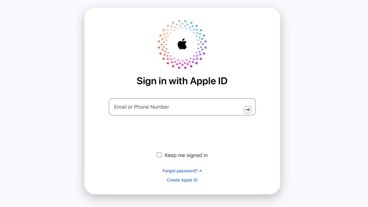Review roundup: Verizon iPhone 4 is same set, different service
All of the reviews were in agreement that the Verizon iPhone 4 drops significantly less calls than the iPhone 4 on AT&T. Speed tests performed by reviewers show that AT&T's data services are slightly faster than those of Verizon, and the lack of simultaneous data and voice was missed by some of the reviewers.
Existing Verizon customers eligible to purchase the iPhone 4 can preorder the smartphone starting at 3 a.m. Eastern, midnight Pacific on Thursday. Apple online store orders will start for "all qualified customers" on Wednesday, Feb. 9 offering the option of delivery or reserve for in-store pick up beginning Feb. 10.
The Verizon iPhone 4 officially goes on sale on Feb. 10. Apple's retail stores will open at 7 a.m. for the launch and more than 2,000 Verizon Wireless stores will carry the phone.
An internal memo from the carrier suggests that "unprecedented demand" could outpace supply for the device.
Technology journalist Walt Mossberg praised the Verizon iPhone for dropping just three calls over nine days, adding that the three dropped calls had been made to an AT&T iPhone in San Francisco.
Mossberg did, however, encounter a "minor glitch" during setup that caused drop outs, BlueTooth issues and poor battery life. Though Mossberg was able to resolve the issue after contacting Apple, he does not clarify what the issue was and whether it will affect users post-launch.
Scores of speed tests performed by Mossberg in various locations showed that AT&T averaged 46 percent faster download speeds and 24 percent faster upload speeds compared to Verizon. A similar test by Wired found that AT&T download rates in San Francisco are 62 percent faster, while AT&T upload rates are 38 percent faster. At times, the phone would unexpectedly switch from 3G mode to the slower 2G mode, Mossberg noted.
For Mossberg, the added benefits of improved voice calling and the new wireless hot-spot capability outweigh any trade-offs of 3G data speed and the inability to use data and voice simultaneously. However, customers with "tolerable" AT&T service, frequent international trips, or who care about data speed "may want to stick with AT&T."
David Pogue reports for The New York Times that the Verizon iPhone is "nearly the same" as AT&T's iPhone 4— but it doesn't drop calls, making it "the holy grail" for several million Americans.
Pogue tested the Verizon iPhone alongside the AT&T iPhone 4 in five cities, including San Francisco and New York. In San Francisco, the iPhone on AT&T's network dropped the call four times in 30 minutes of driving, while the Verizon iPhone 4 maintained service. The one dropped call that Pogue experienced from the Verizon iPhone was "in baggage claim at the Los Angeles airport."
The new Personal Hotspot feature, which costs an additional $20 a month for 2GB of tethered data, is "incredibly convenient," according to Pogue, although the feature is also a "merciless battery drain."
Pogue also highlighted four differences between the CDMA iPhone and the GSM version. First, minor adjustments to the design have resulted in minor shifts to the volume and Ringer Off switches, meaning that existing AT&T iPhone cases may not fit the new Verizon iPhone.
Second, long text messages exchanged with non-Verizon phones will get split up into 160-character chunks on the Verizon iPhone. Third, Verizon lacks simultaneous voice and data. Fourth, the Verizon iPhone works in roughly 40 countries, compared to the GSM version's 220 available countries.
Other reviews
MG Siegler wrote for TechCrunch that the "iPhone 4 on Verizon just works." Siegler notes that he was able to make a 45 minute call from his office, something that he was unable to do with the iPhone on AT&T.
Writing for Engadget, Joshua Topolsky found that the Verizon iPhone can "connect much more reliably and consistently" than the AT&T iPhone, but "it wasn't impervious to broken connections and sound quality issues." Topolsky ends his review with by noting that it feels like "Apple and Verizon did the impossible: they made the best smartphone in America just a little bit better."
 Josh Ong
Josh Ong










 Mike Wuerthele
Mike Wuerthele

 Malcolm Owen
Malcolm Owen
 Chip Loder
Chip Loder

 William Gallagher
William Gallagher
 Christine McKee
Christine McKee
 Michael Stroup
Michael Stroup







39 Comments
I expect Verizon will be sold out, of their initial inventory, within a week from launch (Feb 10th)
I know two AT&T customers, on iPhone 3G's, jumping to the Verizon iPhone 4 immediately.
They have been waiting for this day. Both work in NYC.
AND
I know three current Verizon customers, on blackberry's, also waiting patiently for this day....Me, proud owner of an iPhone 4 on AT&T, without any issues whatsoever, in central Jersey.
BUY APPLE STOCK !!!!!
I guess I still don't understand why not being able to use the web while on the phone isn't a deal breaker. I'm the only person who does that apparently.
"The new Personal Hotspot feature"
If this is so new where is Internet Tethering?
I guess I still don't understand why not being able to use the web while on the phone isn't a deal breaker. I'm the only person who does that apparently.
If you can't make a call in the first place it kind of defeats the purpose of this feature.
So better overall call quality, better reception, slower overall download speeds, voice calls take priority over data transfers. No reason for me to switch from AT&T to Verizon. I'll wait and see what the iPhone 4GS/iPhone 5 has to offer.
On a side note, I've noticed that a lof of people have been saying that the flood of iPhones on Verizon will crush the network and make it as crappy as AT&T. I don't quite follow that line of thinking -- Android has already surpassed Apple in the U.S. (AFAIK) and Verizon has been leading the way. So it's not like Verizon's network is untested when it comes to monster smartphone traffic.